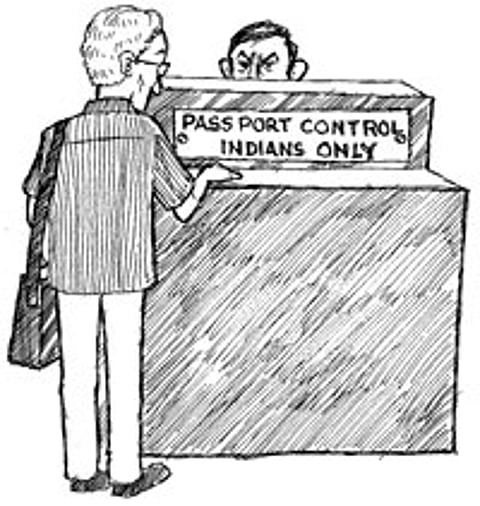At the immigration line
Chauvinist nationalism is possibly the worst trait to be found in modern-day humans – which is, of course, a species that includes Southasians, even though we tend sometimes to think (as Southasian chauvinists, that is) that we are a breed apart. This chauvinism is nicely portrayed by the Indian and Pakistani establishments, which together offer the flags-lowering ceremony at the Attari-Wagah border point. There, we get to see the synchronised choreography of boot-stomping, chest-thumping, scowling soldiers in mock face-off, to the cheers and hoots of the good citizens of Pakistan and India. After the celebration, they get back to their pani poori and kebabs, meek civilians once more who have gotten their adrenalin fix, which perhaps is also an evolutionary requirement.
And yet, while it may be linked to evolution, the more exclusive the nationalism that one harbours, the more lightweight it tends to be. The Nepali militant will shout himself hoarse about the Indian grab of Kalapani at the tri-junction of India-Nepal-China/Tibet, but will tape over his mouth the moment he gets close to power in Kathmandu. Chauvinism-on-call is evident in the immediate aftermath of any bombing in any of our countries, where, rather than blame forces within, the immediate and readymade recourse is to the intelligence acronym from across the border.

